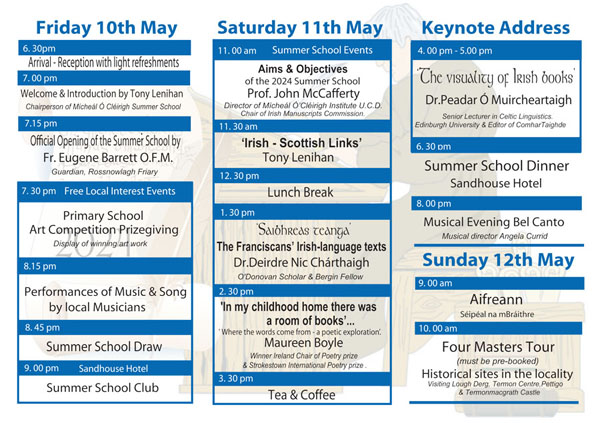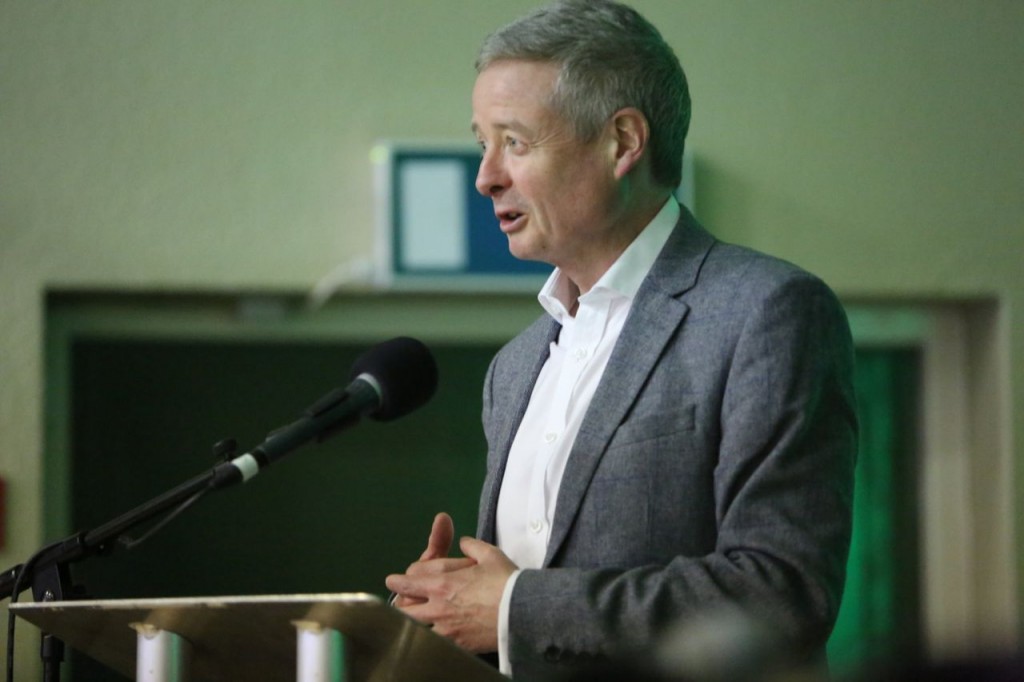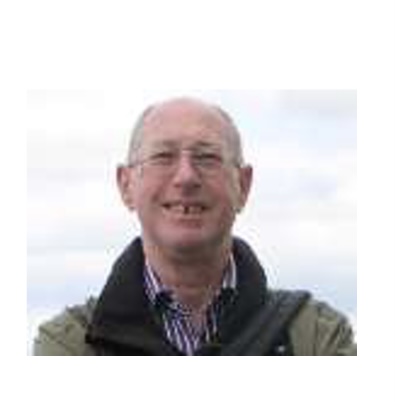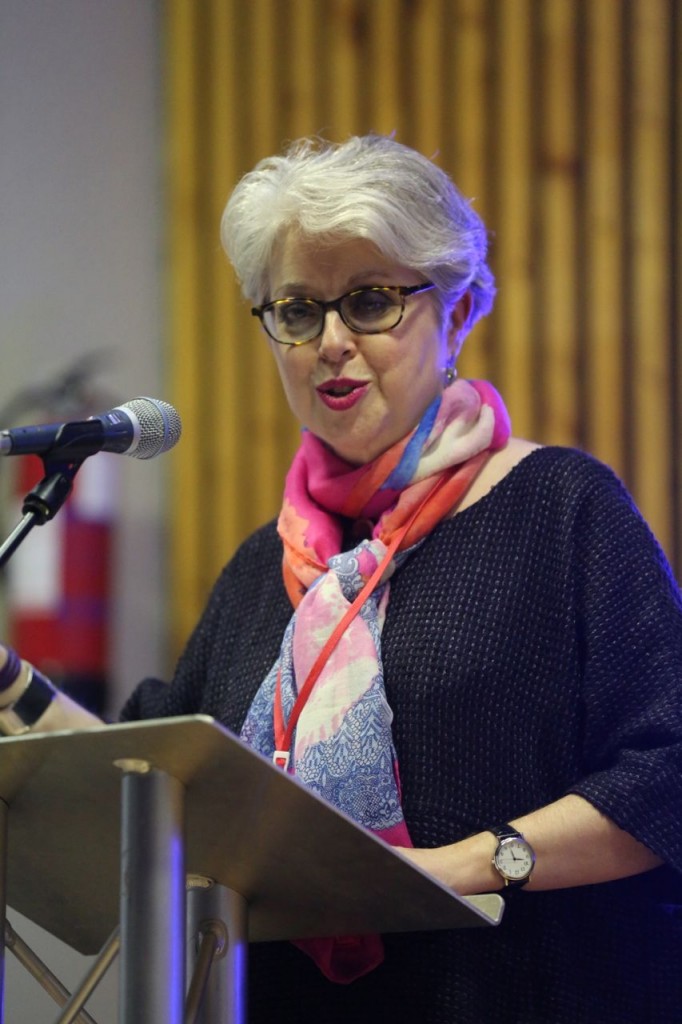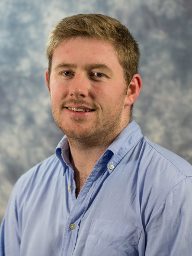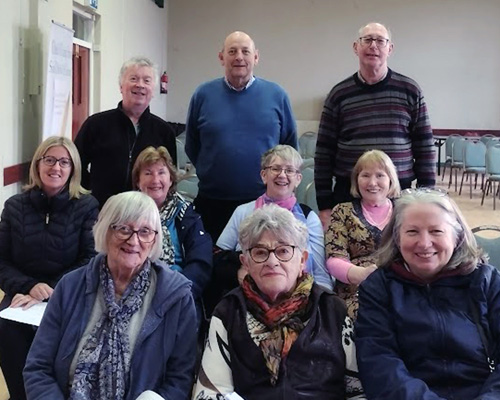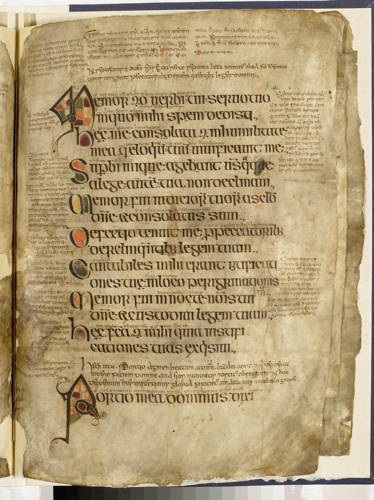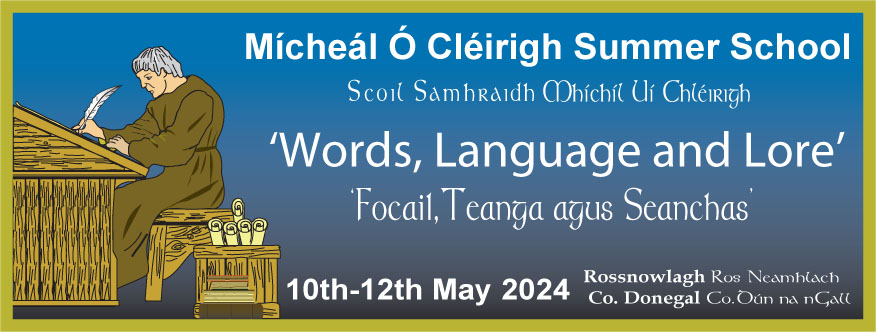
2024 Summer School
The 2024 Mícheál Ó Cléirigh Summer School will be held over the weekend from Friday 10th to Sunday 12th May. The theme of the weekend is ‘Words, Language and Lore/ Focail, Teanga agus Seanchas’ and will examine how words and language collided in Mícheál Ó Cléirigh’s Ireland. We will be celebrating our tenth Summer School and we plan to have a very interesting, exciting and informative weekend.
See our weekend programme below.
These are the current sponsors of the Mícheál Ó Cléirigh Summer School

The Speakers at the 2024 Summer School
Aims & Objectives of the 2024 Summer School
Professor John McCafferty
History Department University College Dublin is chair of the Irish Manuscripts Commission, and an Honorary Professor of the History of Catholicism in the Department of Theology and Religion at Durham University.
Educated in University College Dublin and at the University of Cambridge, McCafferty is an historian of both Catholicism and Protestantism in early modern Ireland and Britain. John McCafferty has made a significant contribution to historical records including editing The
Act Book of the Diocese of Armagh, 1518-1522 (2020). The donation of manuscripts and rare books by the Franciscan to UCD has underpinned much of this work. With Dr. John Kelly, he edited the recently released first volume of The Oxford History of British & Irish Catholicism covering the period 1530-1640, from Henry VIII’s break with Rome to the outbreak of the civil wars in Britain and Ireland. As Director of the Mícheál Ó Cléirigh Institute, he has been involved with the Summer School since the beginning.
Irish- Scottish Links
Mr Tony Lenihan
Tony Lenihan is the current chairperson of the Mícheál Ó Cléirigh Summer School Committee and editor of the Summer School yearbook. He has an M.Litt. Nua-Ghaeilge ar Ollscoil na hÉireann Mhá Nuad (2016), a B.A. in Mathematical Science, and a Diploma Computer Science from University College Cork. A former Information Technology consultant and lecturer in Galway Regional Technical College (now part of Atlantic Technical University), he is a proud Corkman who has lived in Germany and Watford as well as Connacht, Leinster and Ulster. Experiencing a range of places has led to an interest in culture and in investigating the origins of place names, language, and identity.
Saibhreas Teanga- The Franciscans Irish Language texts
Dr Deidre Nic Chárthaigh
Dr Deidre Nic Chárthaigh is Assistant Professor at the Department of Irish and Celtic Studies in Trinity College Dublin, and is currently editing a series of classical poems on the harp and on harpers. She achieved her BA in Modern Irish and History from TCD (2014) and her PhD from the same institution (2019). Nic Chárthaigh, an O’Donovan
Scholar (2021-22) and Bergin Fellow (2022) in the School of Celtic Studies at the Dublin Institute for Advanced Studies, is a member of project Léamh. Her research focuses on Early Modern Irish prose, bardic poetry, and the Irish manuscript tradition in the post- classical period with a particular interest in the literature of sixteenth and seventeenth-century Ireland. She has edited a number of poems from that period in peer-reviewed
journals such as Ériu and Celtica, and is currently working on a project entitled
Rómánsaíocht Revisited, which aims to make the corpus of Early Modern Irish prose
texts more widely available and accessible.
“In my childhood home there was a room of books”
‘Where the words come from -a poetic expression’
Maureen Boyle
Ms Maureen Boyle is an educator and author. Her most recent book of poetry, ‘The Last Spring of the World’ was published in June 2022 by Arlen House, Dublin. Educated at Trinity College Dublin, she is the recipient of numerous awards for her poetry including: the Ireland Chair of Poetry Prize; the Strokestown International Poetry
Prize; the inaugural Ireland Chair of Poetry Travel Bursary and the Fish Short Memoir Prize. Her most recent award is from the Arts Council of Northern Ireland to research the history of botanical embroidery for an ecological project in poetry. She is a poetry
and memoir mentor with the Irish Writers’ Centre, Dublin. (108)
The Visuality of Irish Books
Dr Peadar Ó Muircheartaigh
Dr Peadar Ó Muircheartaigh is Senior Lecturer in Celtic Linguistics at the University of Edinburgh and a member of the team of scholars for the peer-reviewed journal, Comhar Taighde. Before taking up the post in Edinburgh, he was Senior Lecturer at the Department of Welsh and Celtic Studies, Aberystwyth University in Wales. Originally from Mayo, he was educated at NUI Galway, the University of Notre Dame and the University of Edinburgh where he completed his PhD. His research interests include the literature and culture of eighteenth-century Gaelic Scotland and Ireland. He held research fellowships in the School of Celtic Studies at the Dublin Institute for Advanced Studies (2017-18) and in the Arnamagnæan Institute at the University of Copenhagen
(2020-22). With a special interest in the relationship between manuscript and print in the Gaelic world, he has published widely on Irish language and literature.
Welcome to the Mícheál Ó Cléirigh Summer School
Fáilte chuig Scoil Samhraidh Mhíchíl Uí Chléirigh
A Summer School for remembering, for learning, for enjoyment. We remember a great local man, Mícheál Ó Cléirigh. We learn from scholars about his story and his times. We begin to understand what this means for us today. And we enjoy ourselves.
We travel to local historic sites. We visit Mícheál’s birthplace. We walk the beautiful Rossnowlagh beach. We talk late into the evening in the local hostelries. Welcome to the Mícheál Ó Cléirigh Summer School to a family distinguished by scholarship. His older brother, Maolmhuire (Fr Bernadine) was ordained in Salamanca, Spain, later moving to Louvain, Belgium in 1619 and Michael joined him a few years later. As a lay brother Michael was able to concentrate on historical research and transcription rather than on priestly duties.
In 1626 he was dispatched by a fellow Donegal man, Hugh Ward to Ireland to collect the lives of the Irish saints. This he did. But he also did more. For 10 years, Michael travelled the length and breadth of Ireland gathering the ancient manuscripts and histories wherever he could find them. He and his collaborators transcribed the material into Annála Ríochta na hÉireann (the Annals of the Four Masters). They left us with an incomparable record of the history of Ireland.
The Mícheál Ó Cléirigh School has been set up by a partnership of:
Local Organising Committee
Local people from Ballyshannon, Creevy and Rossnowlagh area in Co. Donegal who wish to preserve the memory of Mícheál Ó Cléirigh, a local hero who did so much to preserve the ancient and medieval period of Irish History. The committee begin work in September each year planning the upcoming Summer School
Franciscan Community Rossnowlagh
The Franciscan Friars who established a Friary on Donegal Bay 1474 and played such an important part in Irish writing and scholarship from their monasteries in Ireland and Louvain.
Mícheál Ó Cléirigh Institute UCD
The Mícheál Ó Cléirigh Institute at University College Dublin repository of an unparalleled archive of historical documents and the centre of voluminous research on Irish medieval history since its inception in the year 2000. See: www.ucd.ie/mocleirigh
The Mícheál Ó Cléirigh Summer School Rossnowlagh, Co. Donegal
Background
2014–
The inaugural programme of the Mícheál Ó Cléirigh School took place on Saturday 17th May, 2014. with the theme “Mícheál Ó Cléirigh” The main events were held in the Ó’Cléirigh Hall beside the Franciscan Friary at Rossnowlagh, close by the birthplace of Mícheál Ó Cléirigh on lands that belonged to the Ó Cléirigh clan, prior to 1610. The venue was an appropriate one, as it was built by the Franciscan Friars who returned to Donegal in 1946. They were, of course, influenced by the association of the area with some of the renowned members of their Irish fraternity, such as Mícheál Ó Cléirigh, John Colgan and Hugh Ward. See: Summer School 2014 – Theme Mícheál Ó Cléirigh
2015 –
The Second Mícheál Ó Cléirigh School took place at Rossnowlagh on the weekend of 15th – 17th May, 2015. The theme was “Saints and Scholars” “Naomh agus Scoláirí ” The original purpose of Mícheál Uí Cléirigh’s return to Ireland was to collect information on the many Irish Saints and to record their information. For Further information see: 2015 Theme Saints and Scholars
2016-
The Third Mícheál Ó Cléirigh Summer School was held over the weekend of Friday 27th May to Sunday 29th May 2016. The theme was “Refugees and Strangers” “Dídeanaithe agus Strainséirí ” This examined the exodus of many of the Gaelic nobility who left Ireland for European countries and how they coped by being refugees far from their native land. For Further information see: 2016- Refugees and Strangers: being Irish in Europe 1500-1800
2017-
The Fourth Mícheál Ó Cléirigh Summer School was held over the weekend of Friday 12th May to Sunday 14th May 2017. The theme was “Irish and European” “Gaelach agus Eorpach” The weekend events looked at the relationship between Ireland and European countries in the 16th and 17th Centuries and how this has continued to the present time. For Further information see: 2017- Irish and European
2018-
The Fifth Mícheál Ó Cléirigh Summer School was held over the weekend of Friday 11th May to Sunday 13th May 2018. The theme was “Annals and Earls” “Annála agus Iarlaí ” This looked at the way the Ulster Earls were described in the Annals of the Four Masters and did they have a particular O’Donnell favouritism in their recording of the events of the late 16th and Early 17th Centuries. For Further information see: 2018 Annals & Earls
2019-
The Sixth Mícheál Ó Cléirigh Summer School was held over the weekend of Friday 10th May to Sunday 12th May 2019. The theme was “Migration and Plantation” “Imirce agus Plandáil” The Ulster Plantation had a tremendous effect on the lives of the Gaelic Scholars and they found that their skills and learning was no longer required. For Further information see: 2019 Migration & Plantation
2020-
Due to Covid 19 health restrictions the 2020 Summer School was cancelled.
2021 –
A Virtual Summer School was held from Thursday 6th to Sunday 9th of May. The theme was “Women in Turbulent Times- Mná in Aimshir Chorraithe 1551- 1651” This virtual school looked at the way women of the period recorded events in letters sent to their parents husbands and siblings and how they wrote about the things that mattered to their lives and families. For Further information see: 2021 Women in Turbulent Times
2022-
The 2022 Summer School was held School was held over the weekend of May 7th to 9th, The event was held in the Sandhouse Hotel in Rossnowlagh and the theme was Bloodshed and Retribution Doirteadh Fola agus Díoltas in the period 1530 to 1700. It looked at the changes from the Gaelic system of Brehon Law to the new system of English Common Law and how it differed from that of other parts of England Wales and Scotland. For Further information see: 2022 Bloodshed & Retribution
2023-
The 2023 Summer School was held over the weekend of the 5th -7th May and its theme was Feast – Food- Famine / Féasta- Bia-Ganntanas The various talks explored the hardships of day-to-day life in post medieval Ireland in the period from 1500 to 1800 where seasons good or bad could determine the life expectancy of men, women and children. It examined the importance that food or the lack of it can shape historical events of any period in history. For Further information see: 2023 Feast- Food- Famine
